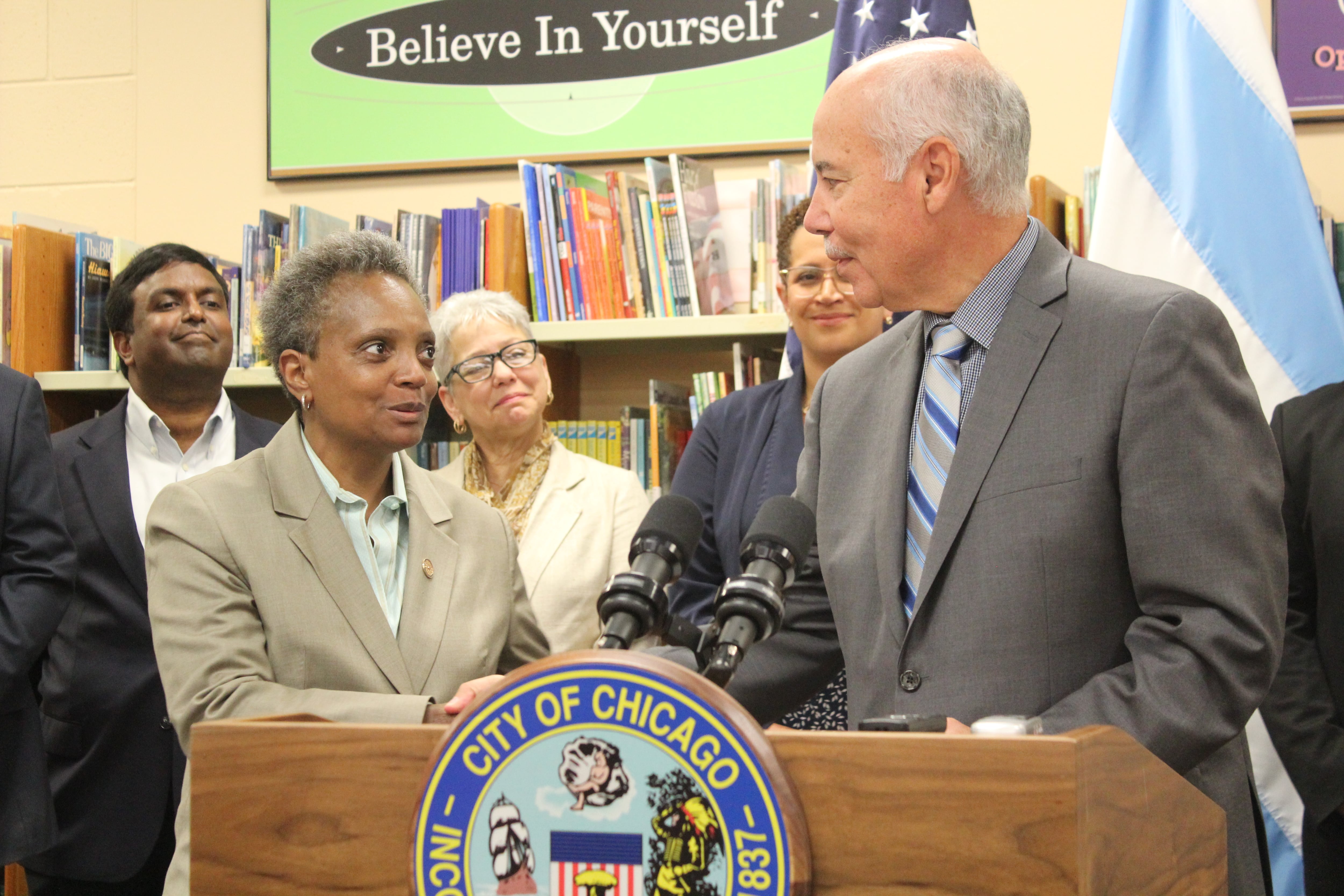The reopening debate in Chicago renewed energy around a bill that would create an elected school board. But a tumultuous lame-duck legislative session ended Wednesday, at least temporarily slowing progress for the effort.
The day after schools reopened to some students in Chicago, state senators were expected to debate HB 2267, which would create a 21-member board of education and establish elections beginning in 2023.
The bill received multiple hearings in the session, but it did not get called for a final vote in a session that had been dominated by behind-the-scenes political maneuvering to replace Speaker Michael Madigan, the state’s powerful longtime speaker of the House. It will be up to the next legislature whether to take up the bill or back another effort.
Community organizations, education advocates and some elected officials have long pushed for an elected school board to govern Chicago Public Schools, where the mayor appoints the seven-person board and can appoint or replace members at will. Calls grew louder in the years after Mayor Rahm Emanuel’s decision, in 2013, to close schools on the city’s south and west sides, a move that disproportionately affected Black and Latino students.
The decision by Mayor Lori Lightfoot and schools chief Janice Jackson to reopen school buildings during the pandemic has reignited the argument. Opponents of the bill have said that the board would be too big and ineffective. They have also raised concerns about monied or political interests overtaking the board, instead of giving parents more power in decision-making at the district level.
“The mayor feels strongly that the current proposal would lead to instability for CPS,” said a statement from Lightfoot’s’s office in response to questions from Chalkbeat. “She has long been clear that she has significant concerns about the bill, which includes a number of provisions that could make the body unworkable.”
Jackson has said that the risk of school board elections is a group controlled by private interests who can pay for campaigns. “It’s not a silver bullet.”
All week long, advocates connected the discord over school reopening — and complaints that educators and families don’t feel heard — to the call for an elected board. On Wednesday morning, the city’s teachers union organized a press event in front of school board president Miguel del Valle’s home in Chicago’s Belmont-Cragin neighborhood. Several pre-kindergarten and special education teachers spoke about how they were locked out of their email and remote classrooms for refusing to report to school buildings. One teacher walked up the steps and knocked on del Valle’s door as cameras rolled.
“We are here today to demand that the (school board) stand with thousands of families who have chosen remote learning,” said Linda Perales, a special education teacher and union delegate at Corkery Elementary School.
The day before, education advocates, national and local teacher unions, and elected officials gathered for a virtual press conference to push the Senate to vote in favor of the bill.
Randi Weingarten, president of the American Federation of Teachers, joined the group on zoom to talk about the importance of voting.
“Voting is a franchise that we need to ensure that people who are unseen have rights and have agency. That is what this is about; making sure that there is a school board that reflects, listens to and is responsive to the needs of the community, particularly its parents, its families, and the educators that work with them,” said Weingarten.
Jesse Sharkey, president of the Chicago Teachers Union, cited school plans created and voted on by past appointed school boards that drastically impacted school communities with no public input.
“The same people who were the most affected by the travesty of 50 school closings are the same people who are most affected by our inability to have an agreement about safe reopening of our schools,” Sharkey said.
The majority of school districts across the country have elected school boards, according to a 2016 Pew Charitable Trusts study. But there are notable exceptions among big cities, including New York, Boston, and Philadelphia. In New York, the mayor appoints the majority of a 13-person board; in Boston and Philadelphia, mayors appoint members from lists drafted by citizen nominating panels.
There’s no consensus among researchers that any particular type of district governance yields improved academic performance or better fiscal management.
Reopening debates in New York and Philadelphia have stirred sentiments about mayoral control. In New York, the state legislature can extend the term for how long the mayor can appoint board members. The term for mayoral control ends in 2022, after Mayor Bill de Blasio leaves office. Education advocates want to urge state legislators to consider an elected school board, but fear that the effort will be overshadowed by the budget crisis due to the pandemic.
In Philadelphia, education advocates have also challenged mayoral control amid reopening, arguing that Mayor Jim Kenney has too much control over the district and is not transparent about decision-making.
Reema Amin and Johann Calhoun contributed to this report.





